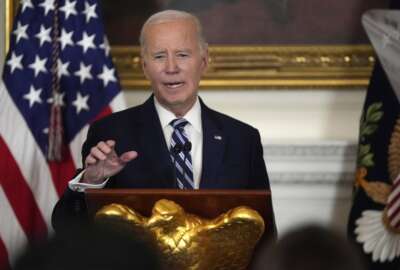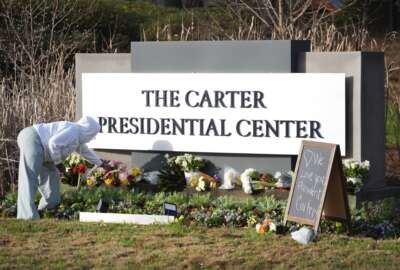Cambodian PM wants US to amend deportation agreement
Cambodia's prime minister says he wants to amend a 15-year-old pact with Washington that calls for Cambodians with permanent resident status in the United States to...
PHNOM PENH, Cambodia (AP) — Cambodia’s prime minister said Thursday that he wants to amend a 15-year-old pact with Washington that calls for Cambodians with permanent resident status in the United States to be repatriated if they have been convicted of a felony crime.
Prime Minister Hun Sen said at a school graduation that he has been urging the United States to review the agreement, which calls for deporting the Cambodians after they have served their prison terms. More than 500 have been sent back so far.
His approach comes at a period of cooling relations between Cambodia and the United States. China is Cambodia’s main political and economic ally, and relations between the two countries have grown even closer as Beijing tries to project its influence in Southeast Asia.
Critics of the deportation policy say many of those convicted fell into crime as a result of social dislocation suffered as refugees after living under the genocidal 1970s Khmer Rouge regime. Returnees are seen as having difficulty reintegrating into Cambodian society as many have spent most of their lives in the United States.
Hun Sen, who has led Cambodia for more than three decades, said Thursday that the agreement should be reviewed on “humanitarian” grounds because it splits up families settled in the United States. Calls to review the act were first raised last year by Cambodian officials, who asked that the agreement be renegotiated or suspended in order to ease the reintegration problem.
U.S. Embassy spokesman Jay Raman said Thursday that Washington’s response to Hun Sen’s remarks is the same as to those earlier calls: The repatriations can be discussed during joint talks allowed for under the agreement. Raman said such talks were expected in the coming months.
The 2002 agreement between Cambodia and the United States allowed for the implementation of the Clinton-era Illegal Immigration Reform and Immigrant Responsibility Act of 1996, meant to combat illegal immigration and terrorism.
Until recently, Cambodia was largely reliant on foreign aid from the West to support its economy, and attempted to win favor with Washington and others who were critical of his human rights record. Hun Sen particularly took advantage of Washington’s desire for allies in the global war against terrorism in the wake of the Sept. 11, 2001, attacks against the United States.
Chinese aid and investment, along with a non-interference policy that doesn’t criticize Hun Sen’s human rights shortcomings, has inclined the Cambodian leader to move closer to Beijing.
Cambodia in January informed the United States that it was canceling an annual joint military exercise this year, even though planning for the event had already begun. And this month, the U.S. announced that Cambodia had canceled a nine-year-old U.S. Navy humanitarian mission to the country that had been meant to build projects such as maternity wards and school bathrooms.
Copyright © 2025 Federal News Network. All rights reserved. This website is not intended for users located within the European Economic Area.





